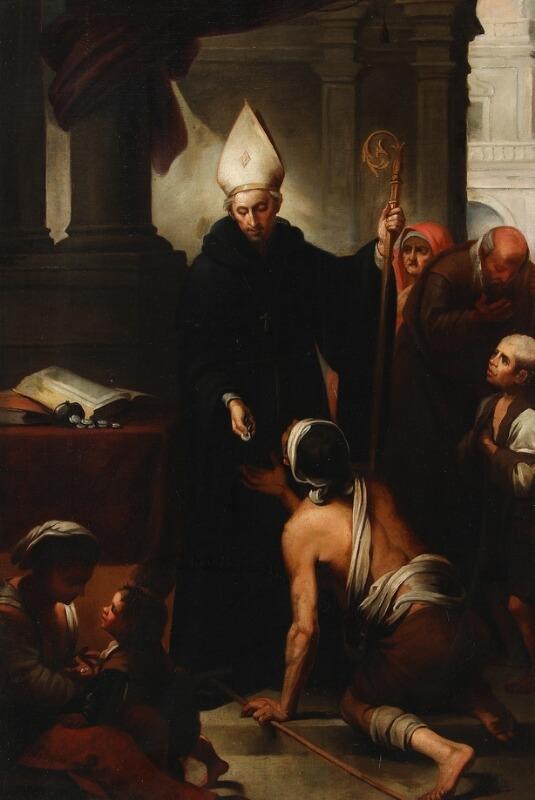Description
The painting Saint Thomas of Villanueva Giving Alms to the Poor by Bartolomé Esteban Murillo is a masterpiece of Spanish Baroque art. This oil painting, made in the 17th century, represents Santo Tomás de Villanueva, a Spanish saint known for his charity and dedication to the poor.
The composition of the painting is impressive, with an abundance of detail and careful attention to light and shadow. The figure of Saint Thomas is in the center of the painting, surrounded by a group of poor people who are waiting for his help. The figure of the saint stands out for his gesture of generosity, while the poor are represented with a great variety of expressions and attitudes.
Color is another outstanding aspect of this work. Murillo uses a palette of warm, earthy colors, giving the painting a sense of warmth and humanity. The details in the clothing and objects are also impressive, with lots of textures and patterns adding depth and realism to the work.
The history of the painting is also fascinating. It was commissioned by the Brotherhood of Charity of Seville, a religious organization dedicated to helping the poor and needy. The painting became a symbol of charity and generosity, and was used as a model for other works of art and for religious education.
In addition to its beauty and historical importance, the painting Santo Tomás de Villanueva Giving Alms to the Poor also has some little-known aspects. For example, it is believed that Murillo used real models to represent the poor in the painting, giving it greater realism and authenticity. It has also been suggested that the figure of Santo Tomás is based on Murillo himself, adding a personal touch to the work.

